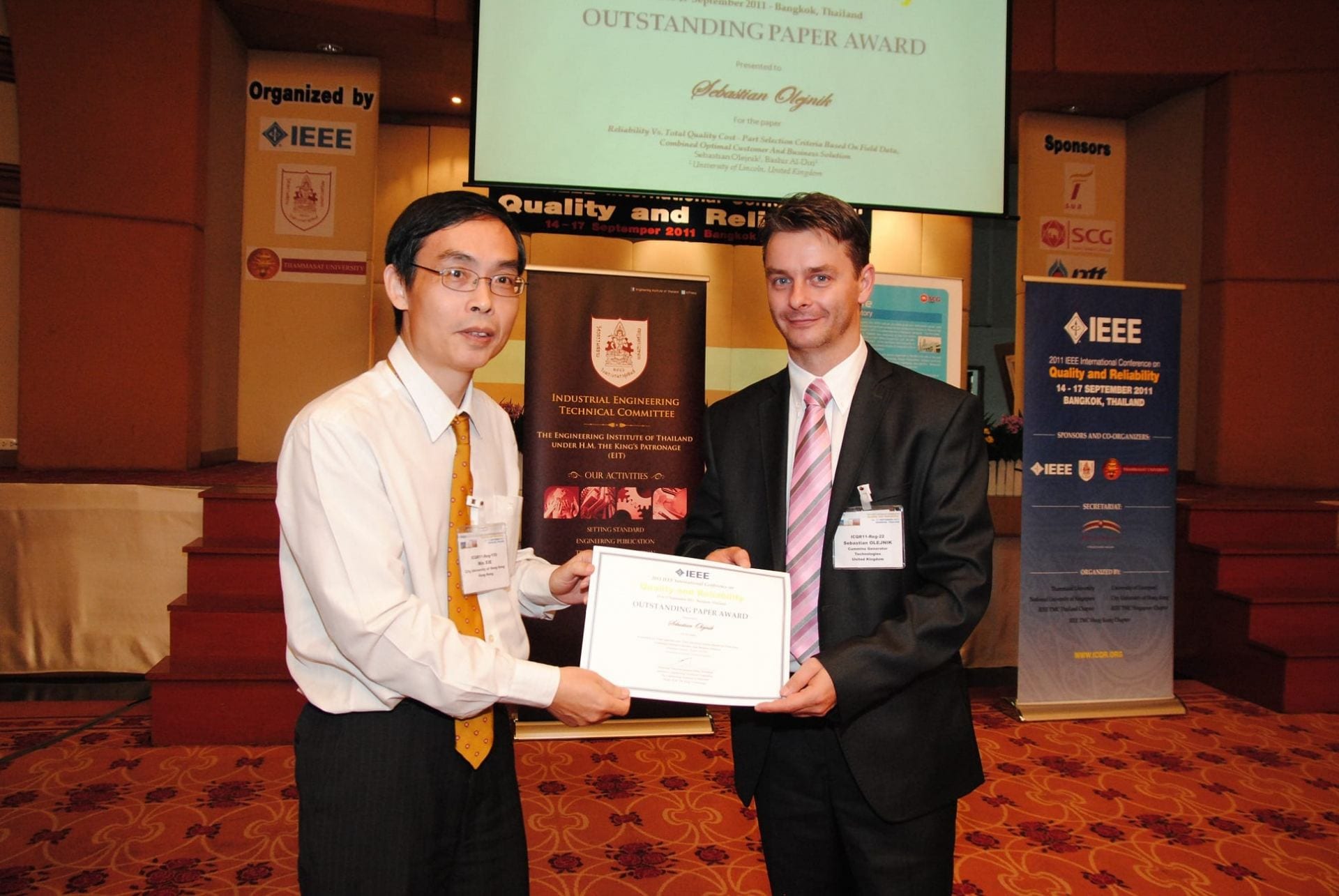We all want the machines we use to ‘last’. The $64,000 question is for how long?
“Inevitably, most customers accept that ‘time-expired’ parts will ultimately fail in service but the problems start when components fail ‘early’. A sudden spate of warranty claims can be a nightmare for manufacturers and customers alike, and dealing with them is an expensive and time-consuming business. Obviously, the answer is to make sure it doesn’t fail prematurely by ensuring the highest quality levels. But isn’t there a limit to how much companies can, or should spend on product quality?”
These are the opening lines from an article in Generating Insight, the Cummins Generator Technologies magazine. It discusses the findings from a recent research project funded by Cummins Generator Technologies and undertaken by a Masters student from the School of Computer Science. The student not only presented his research at a top international conference in Thailand, but even won the conference’s “Outstanding Paper Award” for his findings.

Sebastian Olejnik, a Masters student supervised by Dr Bashir Al-Diri of the School of Computer Science at the University of Lincoln investigated the material and part selection process and its effects on customer satisfaction and business profit. The authors showed that customer objectives are to get a product that at least satisfies their functional requirements and to have a high Quality Price Ratio; meanwhile, business objectives are to earn maximum possible profits and provide a product that at least satisfies customer requirements. All these objectives were combined for an optimal part selection process which needs to start with a reliability analysis to exclude parts and materials below minimum customer reliability standards.
Head of School Dr David Cobham said “The work is an example of the University’s concept of ‘student as producer’ where the students apply the theory they have learned and are encouraged develop ideas of their own. Students of the School of Computer Science have previously succeeded in getting their papers accepted at academic conferences in places as far afield as China and the USA and they have all been funded to travel and present their work. Sebastian was delighted to discover on arriving at the prestigious International Conference on Quality and Reliability in Bangkok that he had won the award which was presented to him at the Conference Dinner.”